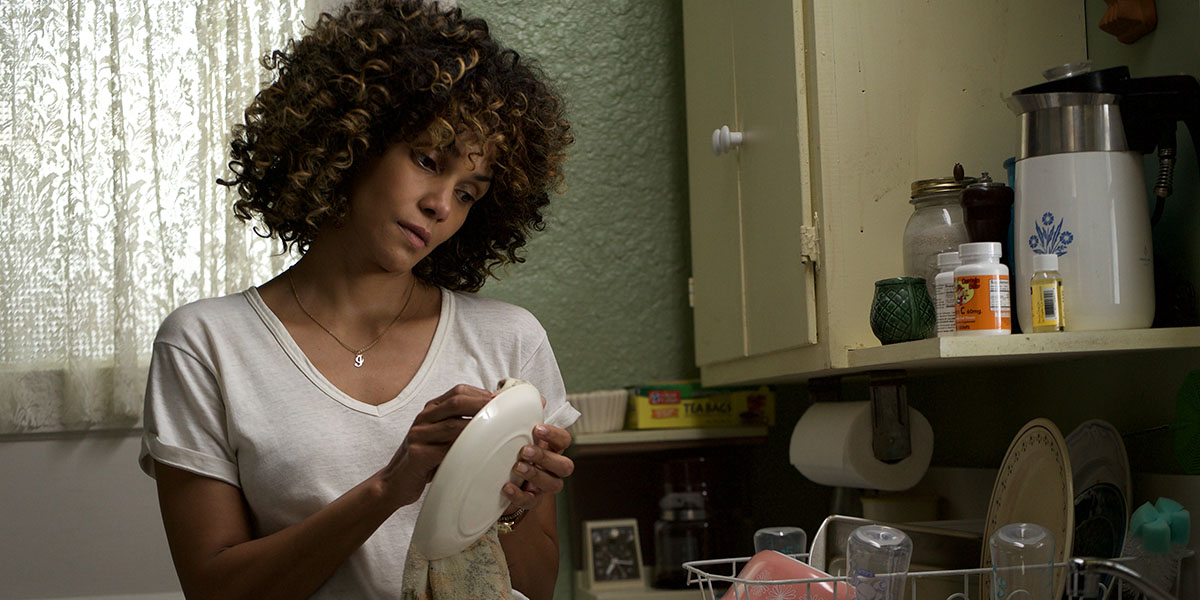One sure lesson to be learned from the relatively tepid reception and box office of “Detroit” earlier this summer is that wrangling racial flashpoints on-screen is no easy task. If Kathryn Bigelow faltered somewhat in her attempt, then we can safely call Deniz Gamze Ergüven’s “Kings,” a chronicle of the 1992 L.A. riots, an absolute face-plant. Starring Halle Berry and Daniel Craig, Ergüven’s sophomore film is a tonal disaster, jerking from shrill melodrama to screwball comedy and always at the most inappropriate of moments. Clearly, Ergüven is out of her depth with “Kings,” which received its World Premiere at the Toronto International Film Festival.
In what is a smart decision on paper, if not executed so well on film, “Kings” narrows its scope to an unconventional family’s experience of the simmering racial tension in Los Angeles in the early ‘90s. Berry plays Millie, a single mother with a generous heart, opening her home to children of various ages left parentless because of a prejudiced justice system. Thankfully, her biological son Jesse (Lamar Johnson), ostensibly the father figure in the household, has a good head on his shoulders and helps to maintain a state of equilibrium. The occasionally unruly kids draw the ire of next-door neighbor Obie (Craig), a trigger-happy novelist whose own volatility brings the cops out to the neighborhood in one over-the-top instance.

The bracing murder of a young African-American girl by a Korean convenience store owner sets the fuse, and the unjust verdict in the trial of the four police officers brutalizing Rodney King is the when the powder keg explodes. The former, right at the outset, is doubtlessly the best sequence in “Kings,” muscular and direct without being undone by cringe-worthy line delivery. By contrast, Ergüven’s rendering of the riot proper is fairly bland, lacking in the intimate familiarity with Los Angeles that could lend the proceeding with a sense of authenticity.
Everything goes downhill after the brief but engaging prologue, and a lot of the blame can be placed on the performances of the two leads. Berry might still looking for her career renaissance, but this certainly isn’t it; most of the time when Millie is in the frame, she’s launching a verbal assault on Obie or at her youngest charges. Craig, on the other hand, seems to be coasting on residual energy from “Logan Lucky” in a performance that can be best described as goofy. His accent is all over the place as well, traversing American dialects before giving up and going for straight-up British.

A laughable high-mark comes in the form of a dream sequence that plays out like an outtake from the black-void seduction scenes from “Under the Skin.” This is the point where Millie realizes she’s attracted to the neighbor she has shouting matches with on the regular (because, why not?). When the riots properly kick in and Millie tries to track down her brood, she finds herself handcuffed twice — in both instances, a consequence of her hysteric reactions — the second time tied around a lamppost with Obie. What exactly this screwy scenario is supposed to communicate about racial tension and reconciliation is truly head-scratching. If Ergüven is trying to make “Kings” intentionally funny, she certainly misses the mark there, too.
Jesse gets a prominent amount of screen time, in a backup plot involving a romantic triangle with the latest ne’er-do-well house guest and a feisty, transgressive young girl he’s taken a shine to. The strand is where most of the melodrama lies, as Jesse squanders the audience’s goodwill with a string of poor decisions that betray his initial morally-upright characterization. The jarring cuts from Jesse’s plotline to the hijinks of Millie and Obie are where most of “Kings” tonal whiplash comes from, as if Ergüven stitched together two different scripts about the riots.
Just how bad is “Kings”? Let’s put it this way — even soundtrack legends Nick Cave and Warren Ellis phone it in with a forgettable score. When the music is obtrusive to be noticable, it sounds like secondhand Vangelis from the most treacly moments in “Blade Runner” (lovable in that film, here, not so much). There is also egregious overuse of lap dissolves — tacky in the title sequence, and only worse from there — highlighting the crutch of archival footage. The technique only serves to draw attention to what must have been budgetary limitations, with financing predominantly coming from France and China. “Kings” is going to be a tough sell for The Orchard when it unspools in theaters later this fall. [D]
Click here for our complete coverage from the 2017 Toronto International Film Festival






That’s a shame. Mustang was excellent and emotional storytelling.